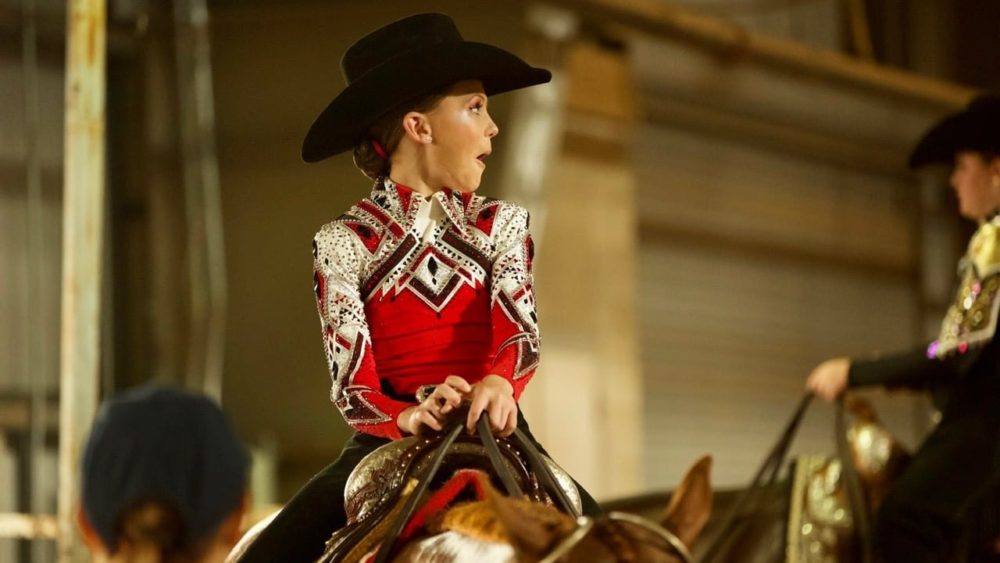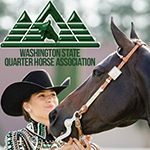Small-fry events feature the future of our industry: the tiniest competitors paired with the most willing, loveable equine partners. Though their job seems relatively simple on the surface, the walk-trot horse is truly a wonder of our industry. Trusted with the safety of the youngest riders, they carry an immense amount of responsibility upon their backs.
It is far from true that any horse can make an excellent walk-trot partner, so finding a horse with all the right parts is significant to ensuring a wonderful experience for a small-fry rider as they start their journey as an exhibitor. GoHorseShow had the opportunity to chat with industry leaders Dan and Darlene Trein, Leigh Berryhill, and Joetta Bell about these ideal traits of a small-fry horse.
A good-natured partner
All four of our experts agreed that first and foremost, the perfect small-fry horse has to be exceptionally good-natured. Darlene Trein explained that she has found, throughout her forty-plus years training horses, that small-fry horses are “close to being the saints of our industry,” with their intensely forgiving attitudes and unquestioning willingness “for a small, short-legged rider.”
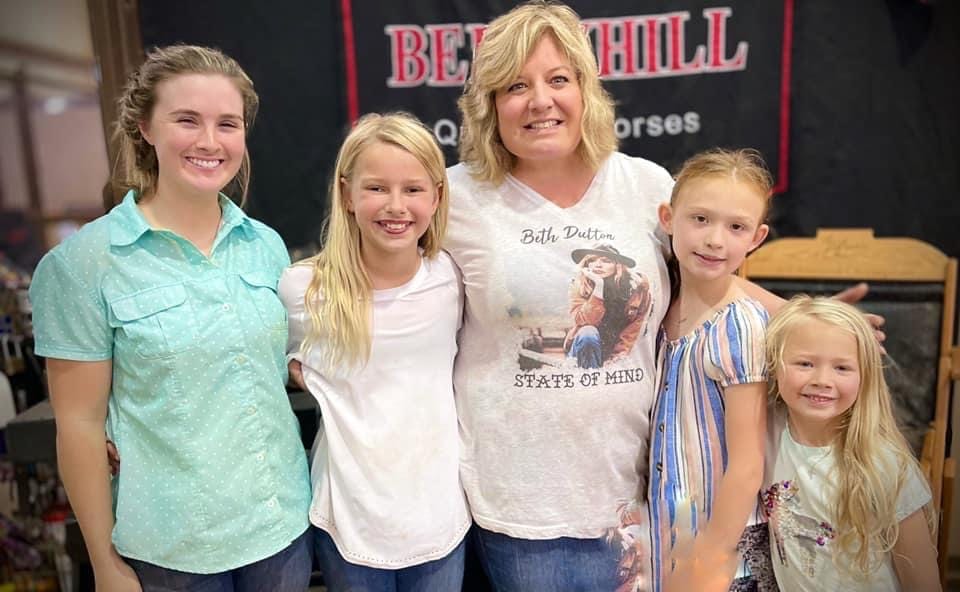 The gentle nature of a small-fry horse is demonstrated through many aspects of its personality and is particularly well represented through the horse’s patience. Leigh Berryhill of Berryhill Quarter Horses in Talala, Oklahoma, explained that patience is “the number-one thing” that a small-fry horse must demonstrate.
The gentle nature of a small-fry horse is demonstrated through many aspects of its personality and is particularly well represented through the horse’s patience. Leigh Berryhill of Berryhill Quarter Horses in Talala, Oklahoma, explained that patience is “the number-one thing” that a small-fry horse must demonstrate.
Joetta Bell, whose daughters Trinity and Jayden have enjoyed high levels of success in walk-trot events, explained, “They have to be kind-hearted, and they have to be intelligent around their surroundings, not spooky — bomb-proof, essentially. 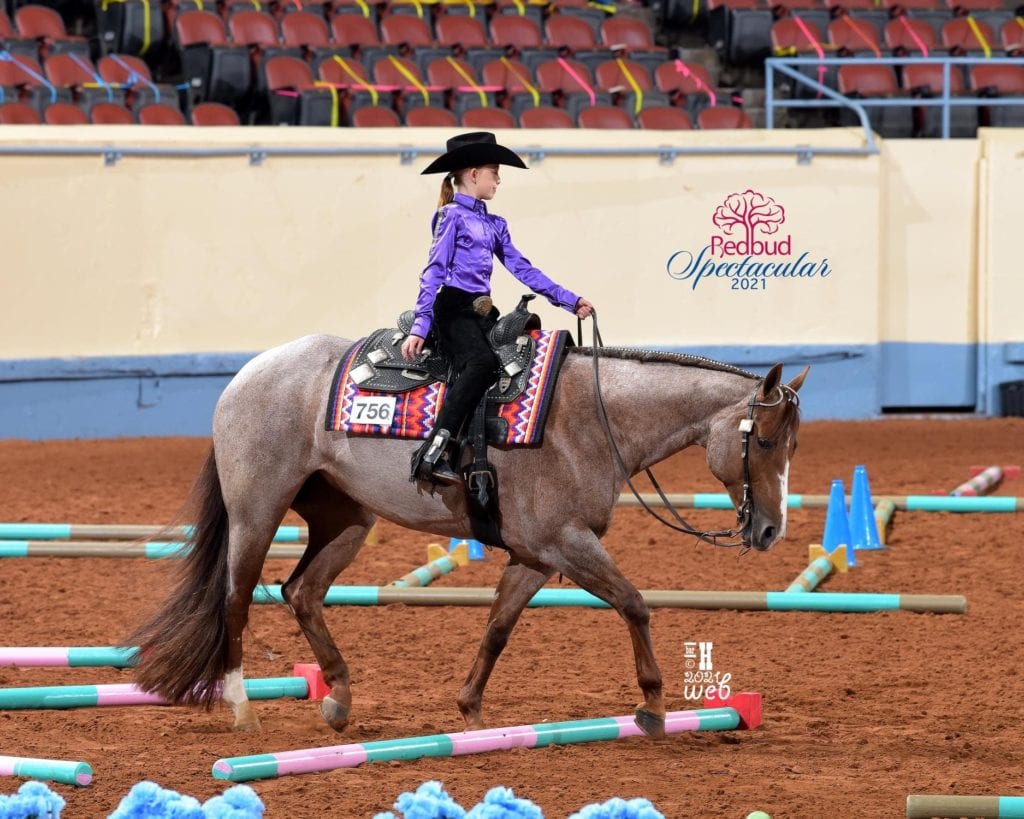 They have to be able to take incorrect training sometimes because little kids are going to make mistakes,” she said. Especially when it comes to the occasional incorrect cue, she said that small-fry horses “have to know their job and not let it change their direction, and how they perform.”
They have to be able to take incorrect training sometimes because little kids are going to make mistakes,” she said. Especially when it comes to the occasional incorrect cue, she said that small-fry horses “have to know their job and not let it change their direction, and how they perform.”
For young riders, it may only take one bad experience to turn them away from the sport of horseback riding. Having a quiet, good-natured horse that is less prone to spooking or exhibiting signs of frustration when faced with mistakes, helps to minimize the chance of a negative experience.
A rider’s first show partner plays a massive role in shaping their showing experience to be positive, uplifting, and encouraging. As Darlene Trein put it, it is essential that walk-trot horses “not do anything to discourage that little rider.”
A teacher at heart
Just as with school teachers, small-fry horses not only have to be patient and kind, they have to be experts in their field. But the twist is that the field of a walk-trot horse happens to encompass a variety of different skills. Bell explained that a small fry horse “has to have a lot of experience in the show pen.”
 Walk-trot riders are only getting their first taste of what it is to present their ability and their horse’s ability to a judge. Having an experienced horse who will not interfere with a young rider’s capabilities, which can even assist them from time-to-time, hugely benefits the growth of a rider’s confidence, and therefore, their skill as a showman.
Walk-trot riders are only getting their first taste of what it is to present their ability and their horse’s ability to a judge. Having an experienced horse who will not interfere with a young rider’s capabilities, which can even assist them from time-to-time, hugely benefits the growth of a rider’s confidence, and therefore, their skill as a showman.
Dan Trein built on this idea, saying that a horse’s high degree of education in fundamental skills is vital to helping young riders learn how to communicate with their horse. “Those horses have to know their job, whether it’s those fundamental parts — the turn-around or the stop — or something as simple as jogging or backing up, all of those elements have to be in place so that that little rider can have some fun and success and have a good communication level with their horse,” he said.
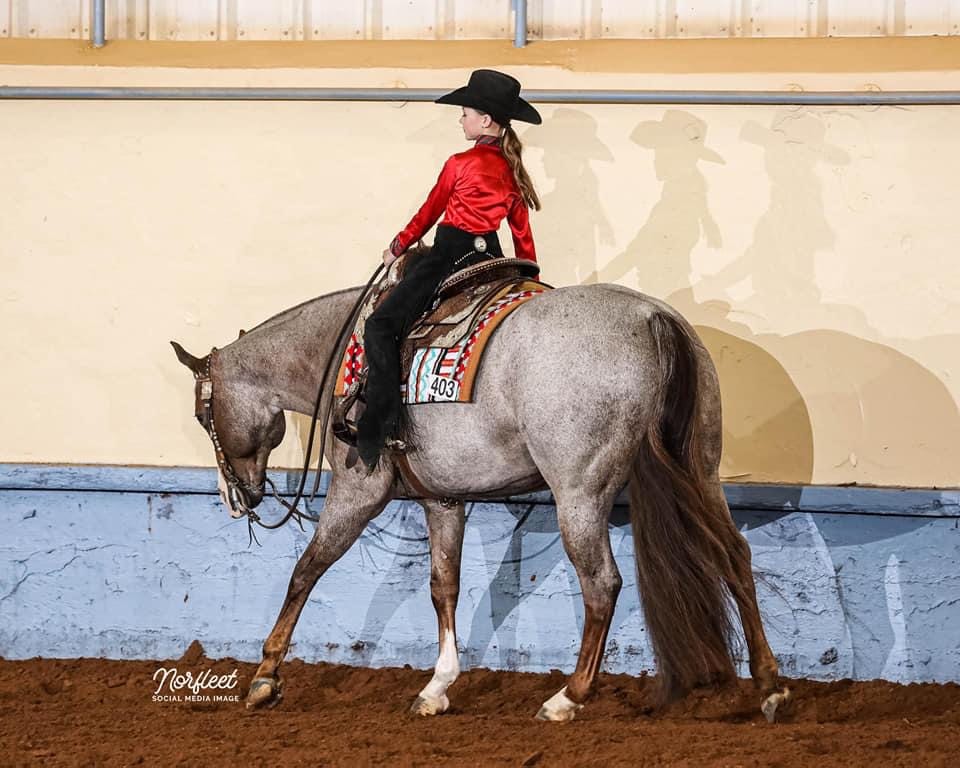 Berryhill agreed, noting that a small-fry horse has to be able to help its rider learn how to “manage the horse, their rail space, and their manners in the class,” which eventually helps them become “less nervous riders that are more confident as they go on to the next step.”
Berryhill agreed, noting that a small-fry horse has to be able to help its rider learn how to “manage the horse, their rail space, and their manners in the class,” which eventually helps them become “less nervous riders that are more confident as they go on to the next step.”
She also added that she doesn’t simply look for a great walk and jog when looking for the ideal small-fry horse. “I look at the canter and the lope also,” she said, explaining that while a walk-trot horse does not have to be a superstar at the lope, they “at least have to be good enough that the exhibitor can learn on it.”
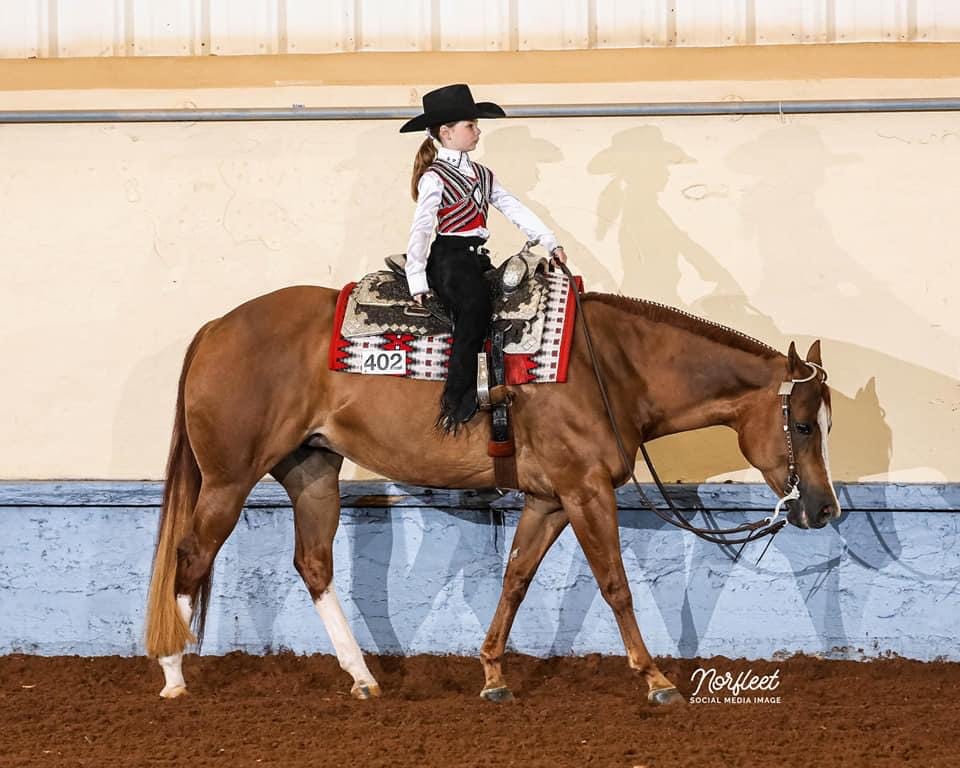 The walk-trot horses are indeed “the saints of our industry.” They are some of the most incredible babysitters, teachers, and companions that many parents could want for their children.
The walk-trot horses are indeed “the saints of our industry.” They are some of the most incredible babysitters, teachers, and companions that many parents could want for their children.
From being ridden and shown to being brushed and pampered in their stalls, these horses should exude a kindness that keeps their young riders coming back for more, while encouraging growth and confidence in their riding ability.
Small-fry horses are the sweetest, most patient, and forgiving horses out there. They are certainly worth their weight in gold for the lessons they teach the next generation of great horsemen and women.


